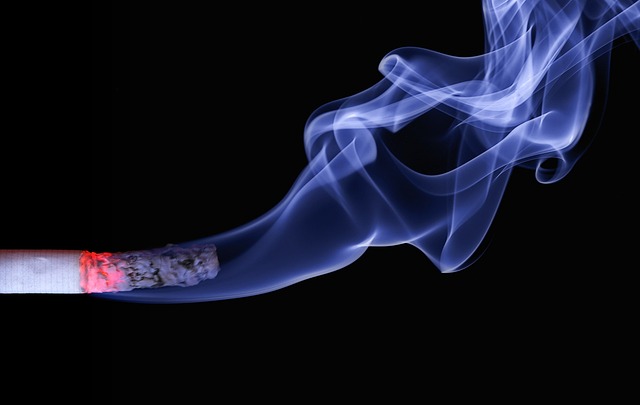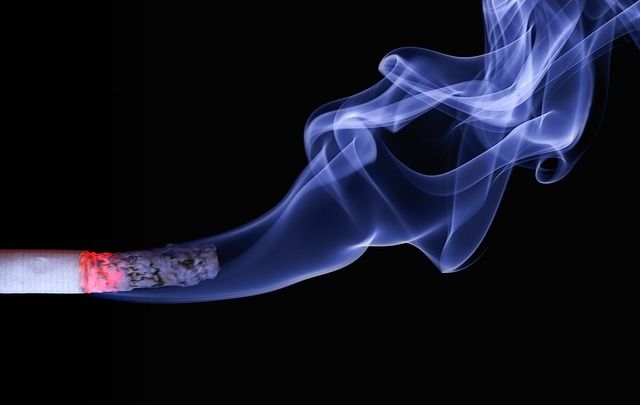Smoking and Tooth Extraction: Know the Risks
Smoking and tooth extraction: two topics that may seem unrelated at first glance, but delve a little deeper and you’ll uncover a web of risks and consequences. As confident and knowledgeable individuals, it is crucial that we understand the potential hazards associated with smoking when it comes to dental procedures. In this article, we will explore the intricate relationship between smoking and tooth extraction, shedding light on the dangers that lie within this seemingly routine procedure. So, grab a seat, and let’s dive into the world of smoking and its impact on tooth extraction.
1. Understanding the Relationship: Smoking and Tooth Extraction
Smoking and tooth extraction are two factors that are closely linked when it comes to oral health. Understanding the relationship between these two can provide valuable insight into the potential risks and complications associated with smoking before or after a tooth extraction. Here are some important points to consider:
- Increased risk of infection: Smoking weakens the immune system, making it harder for the body to fight off infections. This can significantly increase the risk of developing an infection after a tooth extraction. Infections can cause pain, delay the healing process, and even lead to more serious complications.
- Delayed healing: Smoking negatively affects blood flow and oxygen delivery to tissues, which can impair the healing process. After a tooth extraction, it is crucial for the extraction site to heal properly to prevent complications such as dry socket. Smoking can delay this healing process, prolonging discomfort and increasing the risk of complications.
- Impact on bone health: Smoking has been linked to decreased bone density, which can affect the jawbone’s ability to support dental implants or prosthetics. If you are considering tooth replacement options after extraction, smoking can compromise the success and longevity of these treatments.
In summary, smoking and tooth extraction have a significant relationship that should not be ignored. Smoking can increase the risk of infection, delay healing, and impact bone health. It is essential to discuss your smoking habits with your dentist or oral surgeon before a tooth extraction to ensure proper care and minimize potential complications. Quitting smoking, even temporarily, before and after the extraction can greatly improve the success and overall oral health outcomes.

2. The Impact of Smoking on Dental Health
Smoking has a detrimental effect on dental health, leading to a number of oral health issues. Here are some of the impacts of smoking on dental health:
1. Stained Teeth: Smoking causes yellowing and staining of teeth due to the presence of tar and nicotine in cigarettes. These substances penetrate the enamel, resulting in unsightly discoloration that cannot be easily removed with regular brushing.
2. Gum Disease: Smoking increases the risk of gum disease, also known as periodontal disease. The harmful chemicals in tobacco products irritate the gums, causing inflammation and infection. This can lead to symptoms such as bleeding gums, bad breath, receding gums, and eventually tooth loss.
3. Delayed Healing: Smokers may experience delayed healing after dental procedures such as tooth extraction or oral surgery. The chemicals in cigarettes can impair blood flow, reducing the body’s ability to heal wounds and fight off infections.
4. Oral Cancer: Tobacco use, including smoking, is a major risk factor for oral cancer. Smoking exposes the oral tissues to carcinogens, increasing the likelihood of developing cancer in the mouth, throat, or lips. Early detection and quitting smoking can significantly reduce the risk of oral cancer.

3. Smoking and Its Effect on Wound Healing After Tooth Extraction
Smoking is known to have detrimental effects on wound healing after tooth extraction. It is important for patients to understand the risks involved and the potential impact on their recovery process. Here are some key points to consider:
- Delayed healing: Smoking can significantly slow down the healing process, leading to prolonged pain and discomfort after tooth extraction.
- Infection risk: Smokers are more susceptible to developing infections at the extraction site due to compromised immune function caused by smoking.
- Blood clot complications: Smoking increases the chances of developing a condition called dry socket, where the blood clot that forms after extraction dislodges or dissolves prematurely, resulting in exposed bone and severe pain.
- Reduced oxygen supply: Smoking restricts blood vessels and reduces oxygen supply to the surgical site, hindering the delivery of essential nutrients and impeding the body’s natural healing process.
Considering these factors, it is highly recommended that individuals who smoke refrain from smoking for at least 72 hours after tooth extraction. However, complete cessation of smoking is ideal to promote optimal wound healing and reduce the risk of complications. Consulting with a healthcare professional can provide personalized guidance and support in quitting smoking.

4. Unveiling the Risks: Smoking and Post-Extraction Complications
Smoking poses significant risks to individuals who have recently undergone tooth extraction, as it can lead to post-extraction complications. It is crucial to be aware of these risks in order to make informed decisions about your oral health. Here are some key points to consider:
Increased risk of dry socket: Smoking after tooth extraction can disrupt the blood clot that forms in the socket, leading to a condition called dry socket. This painful condition occurs when the socket is exposed, delaying the healing process and increasing the risk of infection. Smokers are more prone to developing dry socket compared to non-smokers.
Delayed healing: Smoking affects blood circulation and oxygen supply, which are essential for proper healing. This can result in delayed healing of the extraction site and increase the likelihood of infection. Slower healing also means a longer recovery period and potential complications down the line.
It is important to note that these risks are not limited to cigarettes but also apply to other forms of tobacco use, such as cigars and pipes. If you are a smoker planning to undergo tooth extraction, it is highly recommended to quit smoking or at least avoid smoking for a period of time before and after the procedure. This will greatly reduce the chances of experiencing post-extraction complications and promote a faster and smoother recovery.

5. Smoking Cessation: A Crucial Step Towards Successful Tooth Extraction
Smoking cessation plays a vital role in ensuring a successful tooth extraction procedure. Not only does smoking have detrimental effects on oral health, but it can also significantly hinder the healing process post-extraction. Quitting smoking before undergoing tooth extraction is a crucial step that can lead to better outcomes and improved overall oral health.
Here are some key reasons why smoking cessation is essential before tooth extraction:
- Reduced risk of complications: Smoking increases the risk of complications during and after tooth extraction, such as infection, delayed healing, and dry socket. By quitting smoking, you greatly minimize these risks and pave the way for a smoother and more successful extraction procedure.
- Enhanced healing: Smoking impairs blood flow and oxygen delivery to the tissues, which can impede the healing process. By quitting smoking, you promote better blood circulation and provide the necessary oxygen and nutrients for the extraction site to heal efficiently.
- Minimized post-operative pain: Smokers often experience higher levels of post-operative pain compared to non-smokers. Quitting smoking before tooth extraction reduces the intensity of pain experienced after the procedure, allowing for a more comfortable recovery.
It is important to note that smoking cessation should ideally begin well in advance of the tooth extraction procedure. The longer the period of abstinence from smoking, the better the chances of successful extraction and optimal healing. By making the commitment to quit smoking, you are taking a crucial step towards improving your oral health and ensuring the best possible outcome for your tooth extraction.
6. Expert Insights: Dental Professionals’ Recommendations for Smokers
When it comes to the impact of smoking on dental health, dental professionals have valuable insights and recommendations to share. Here are some key recommendations from experts in the field:
- Quit smoking: The most important step smokers can take to improve their dental health is to quit smoking altogether. By quitting, individuals can significantly reduce their risk of developing oral health problems such as gum disease, tooth decay, and oral cancer.
- Regular dental visits: Smokers should prioritize regular dental check-ups and cleanings. Dental professionals can closely monitor oral health, identify early signs of potential issues, and provide personalized advice and treatments to help smokers maintain their dental well-being.
- Oral hygiene: Smokers must practice diligent oral hygiene by brushing their teeth at least twice a day with fluoride toothpaste and using dental floss or interdental brushes to clean between the teeth. Adding an antimicrobial mouthwash to the routine can also help reduce bacteria and freshen breath.
- Healthy diet: A balanced diet rich in fruits, vegetables, and calcium is essential for maintaining good oral health. Smokers should aim to limit their intake of sugary and acidic foods and beverages, as they can contribute to tooth decay and enamel erosion.
By following these recommendations, smokers can take proactive steps towards improving their oral health and reducing the potential risks associated with smoking. Remember, dental professionals are here to provide support and guidance, so don’t hesitate to reach out for personalized advice.
7. Conclusion: Empowering Smokers to Make Informed Decisions About Tooth Extraction
Smokers often face unique challenges when it comes to oral health, particularly when tooth extraction becomes necessary. Throughout this article, we have explored the various factors that smokers should consider before making a decision about tooth extraction. By empowering smokers with the information they need, we can help them make informed choices that positively impact their oral health and overall well-being.
First and foremost, it is crucial for smokers to understand the potential risks associated with tooth extraction. Smoking can significantly hinder the body’s ability to heal, increasing the likelihood of complications after the procedure. By being aware of these risks, smokers can take necessary precautions and work closely with their dentist to mitigate any potential issues that may arise. Additionally, smokers should consider the impact of tooth extraction on their overall oral health. Removing a tooth can sometimes lead to further dental problems, such as shifting teeth, bite misalignment, and jawbone deterioration. By considering these long-term consequences, smokers can make decisions that prioritize their oral health and prevent future complications.
Frequently Asked Questions
Q: What are the risks of smoking before tooth extraction?
A: Smoking before tooth extraction poses several risks to your oral health.
Q: How does smoking affect the healing process after tooth extraction?
A: Smoking can significantly impair the healing process after tooth extraction.
Q: What specific complications can smoking cause during tooth extraction?
A: Smoking can lead to various complications during tooth extraction, including increased bleeding, delayed healing, and higher chances of infection.
Q: Does smoking increase the risk of dry socket?
A: Yes, smoking greatly increases the risk of developing a condition called dry socket after tooth extraction.
Q: How does smoking contribute to dry socket?
A: Smoking can hinder blood flow and reduce oxygen levels, which are crucial for proper healing. This can lead to the formation of a dry socket.
Q: Can smoking affect the success of dental implants after tooth extraction?
A: Yes, smoking can negatively impact the success of dental implants placed after tooth extraction.
Q: Why does smoking hinder the success of dental implants?
A: Smoking restricts blood flow, impairs bone regeneration, and weakens the immune system, all of which are essential for the successful integration of dental implants.
Q: Are there any benefits to quitting smoking before tooth extraction?
A: Absolutely! Quitting smoking before tooth extraction can significantly lower the risks of complications, promote faster healing, and improve the overall success of the procedure.
Q: How long should one abstain from smoking after tooth extraction?
A: It is strongly recommended to completely abstain from smoking for at least 48 to 72 hours after tooth extraction. However, quitting smoking altogether is always the best choice for long-term oral health.
Q: Can nicotine replacement therapy be used as an alternative to smoking during the healing process?
A: Nicotine replacement therapy, such as patches or gum, may be considered as a temporary alternative to smoking during the healing process. However, it is crucial to consult with your dentist or healthcare provider before using any nicotine replacement products.
The Way Forward
In conclusion, it is crucial to be aware of the risks associated with smoking and tooth extraction. The detrimental effects of smoking on oral health cannot be overstated. Smoking can significantly impede the healing process after a tooth extraction, leading to complications and extended recovery periods. It is evident that smokers are more likely to experience infections, delayed healing, and increased pain following a tooth extraction compared to non-smokers.
Moreover, the harmful chemicals present in cigarettes can compromise the overall health of the oral cavity, leading to a higher risk of gum disease, tooth decay, and even tooth loss. It is essential to understand that quitting smoking before undergoing a tooth extraction can greatly improve the chances of a successful procedure and a swift recovery.
Therefore, if you are a smoker facing the prospect of tooth extraction, it is strongly advised to consider quitting smoking or at least refrain from smoking for a significant period before and after the procedure. This will not only reduce the risks associated with the extraction but also promote a healthier oral environment in the long run.
Remember, your oral health is closely intertwined with your overall well-being, and taking proactive measures to prioritize it is of utmost importance. By understanding the risks involved and making informed decisions, you can ensure a smoother and more successful tooth extraction process.






